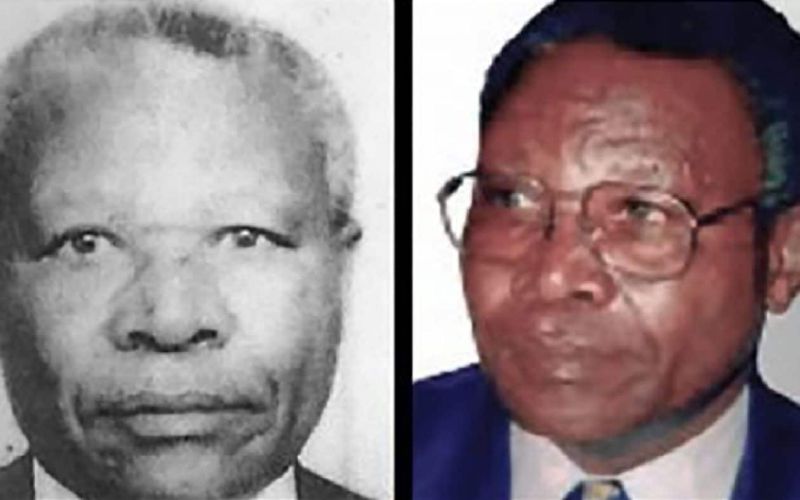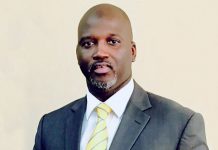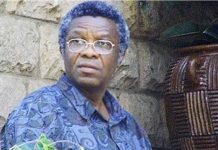AfricaPress-Tanzania: ONE of the world’s most wanted fugitive, Felicien Kabuga, has been arrested.
Kabuga, who is alleged to have been a leading figure in the 1994 genocide against the Tutsi in Rwanda, was arrested in Paris by French authorities yesterday as a result of a joint investigation with the International Residual Mechanism for Criminal Tribunals (IRMCT) Office of the Prosecutor.
A statement made available to the ‘africa-press’ yesterday by the IRMCT said that in reaction to yesterday’s arrest, Mechanism Chief Prosecutor Serge Brammertz stated that the arrest was a reminder that those responsible for the genocide could be brought to account, even 26 years after their crimes.
“Our first thoughts must be with the victims and survivors of the Rwandan genocide. Advocating on their behalf is an immense professional honor for my entire office.
For international justice, Kabuga’s arrest demonstrates that we can succeed when we have the international community’s support,” said the Belgian jurist.
He said that the result was a tribute to the unwavering commitment of the United Nations Security Council that established the Mechanism to continue the accountability process in Rwanda and the former Yugoslavia.
Mr Bammertz extended IRMCT’s appreciation to France and its law enforcement authorities, particularly the Central Office for Combatting Crimes Against Humanity, Genocide and War Crimes and the Office of the Procureur Général of the Paris Courd’Appel.
“This arrest could not have been made without their exceptional cooperation and skill.
It is important to also recognise the many other partners whose contributions were essential, including law enforcement agencies and prosecution services from Rwanda, Belgium, the United Kingdom, Germany, the Netherlands, Austria, Luxembourg, Switzerland, the United States, EUROPOL and INTERPOL.
This arrest demonstrates the impressive results that can be achieved through international law enforcement and judicial cooperation,” he was quoted as saying.
Earlier, officials from the Prosecutor’s Office visited the Ntarama Genocide Memorial in Rwanda to honour the memory of the victims and renew their (officers) commitment to justice.
He said that the arrest underlines the strength of their determination.
Kabuga was indicted by the United Nations International Criminal Tribunal for Rwanda in 1997 on seven counts of genocide, complicity in genocide, direct and public incitement to commit genocide, attempt to commit genocide, conspiracy to commit genocide, persecution and extermination, all in relation to crimes committed during the 1994 genocide against the Tutsi in Rwanda.
Following completion of appropriate procedures under French law, Kabuga is expected to be transferred to the custody of the Mechanism, where he will stand trial.
French police arrested Kabuga in a sophisticated, coordinated operation with simultaneous searches across a number of locations.
The Mechanism was established by UN Security Council Resolution 1966 (2010) to complete the remaining work of the International Criminal Tribunal for Rwanda and the International Criminal Tribunal for the former Yugoslavia that closed in 2015 and 2017, respectively.
The Mechanism has two branches, one in Arusha, Tanzania, and another in The Hague, Netherlands.
The notorious former businessman is among the prominent architects of the 1994 Genocide against the Tutsi, and has been on the run since August 1994.
There is currently no available information about how the genocide financier was arrested or where he has been hiding for the last 26 years.
Kabuga (85), known as the Financier of the Genocide, was a very wealthy businessman during the Genocide and a major shareholder of hate radio station RTLM.
He has been on the run since August 18, 1994 when he slipped from the grasp of the Swiss security Services.
As the genocide progressed, Kabuga was reportedly given a visa to enter Switzerland but was later expelled.
He had also escaped arrest in Kenya several times.
He is accused of establishing the hate radio, RTLM, training and equipping the Interahamwe militia, among others.
According to financial documents found in Kigali after the Genocide, he used his companies to import vast quantities of machetes.
Genocide fugitives continue to roam free in countries, especially in Southern Africa and many of them have since joined a bandwagon of so-called opposition politics, a cover they use to continue evading justice.






